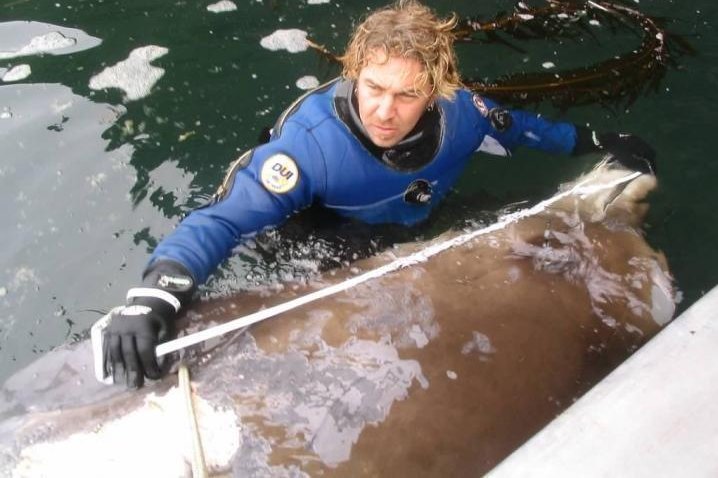In 2004, scientist Reid Brewer of the University of Alaska Southeast measured an unusual beaked whale that washed up dead in Alaska's Aleutian Islands. More than a decade later, researchers have confirmed the specimen as a member of a rare new species. Photo by Don Graves courtesy of NOAA
LA JOLLA, Calif., July 28 (UPI) -- Scientists have identified a rare new species of whale in the North Pacific Ocean.
The whale looks similar to the common Baird's beaked whale, but is slightly smaller and darker. Even Japanese whalers -- who call the species "karasu," Japanese for raven -- rarely see the whale.
Scientists from a variety of universities, as well as the NOAA and Scripps Institution of Oceanography, conducted DNA analysis to confirm the species' uniqueness.
The whale's discovery was announced in a new paper, published this week in the journal "Marine Mammal Science.
Scientists had to rely exclusively on DNA samples, which were compared to museum gene databases, as intact and well-preserved skeletons have been elusive.
"Every known specimen of this new whale found so far has been dead and, in most cases, decomposing on a remote sub-arctic beach," lead study author Phillip Morin, a molecular biologist at NOAA Fisheries' Southwest Fisheries Science Center, said in a news release. "Without a full skeleton of an adult animal or detailed measurements, we had to use forensic genetics to describe the evolutionary differences of this new species."
Scientists have yet to officially name the whale, but have confirmed the species as a member of the genus Berardiusin.
"The challenge in documenting the species was simply locating enough specimens to provide convincing evidence," said Morin. "Clearly this species is very rare, and reminds us how much we have to learn about the ocean and even some of its largest inhabitants."















